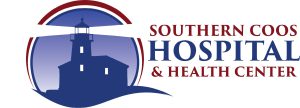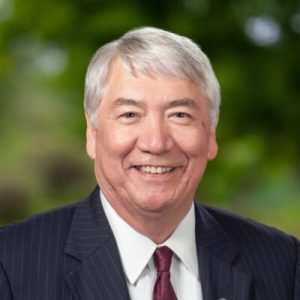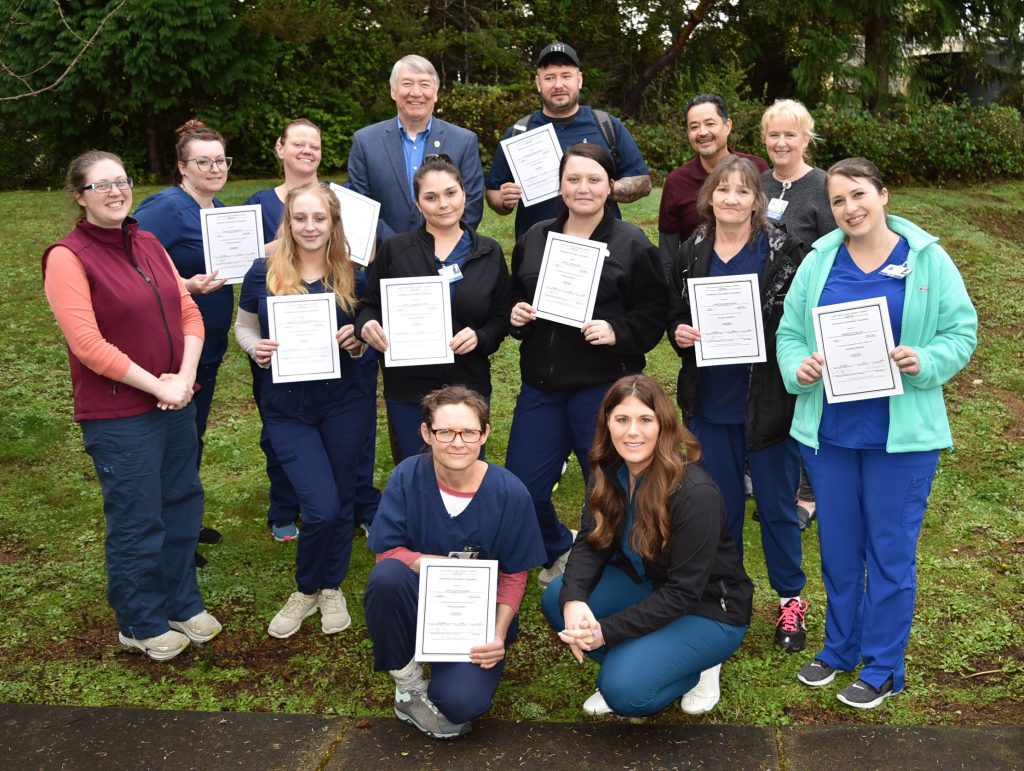Class offered free of charge to participants
BANDON – It’s no secret there’s a shortage of healthcare professionals at all levels worldwide, including physicians, nurses, techs and aides.
The reasons for the shortages vary and are often interrelated. They include an aging population and healthcare workforce, high stress and burnout, and a limited number of new healthcare professionals.
Southern Coos Hospital & Health Center, along with many other hospitals, are doing their part to turn that trend around.
SCHHC recently offered a Certified Nursing Assistant I class free of charge to participants. The program prepares graduates to test for their state board certification following 105 hours of study, including lab instruction and hands-on supervised clinical training.
Nine students graduated successfully from the course at SCHHC. Of those, two have been hired as per diem employees and one hired full-time.
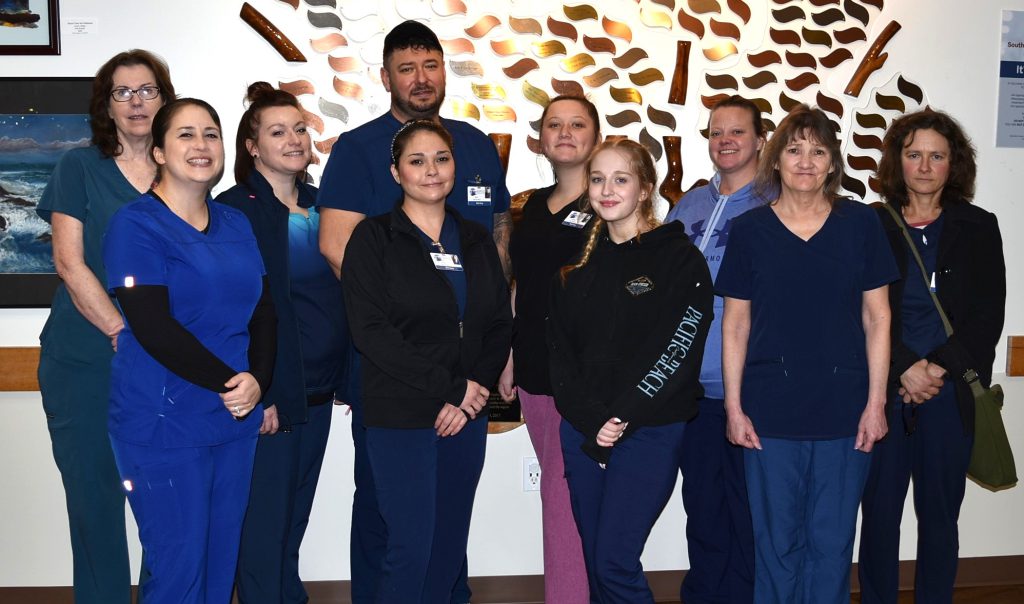
Joan Eberling (pictured in above photo at left with class participants on the first day of training), founder of Pacific Healthcare Training based in Central Point, Ore., offers training for CNA I, Phlebotomy, Medical Assistant, and limited X-Ray Techs. Eberling provided 65 hours of classroom instruction, then students worked with a licensed registered nurse and spent 40 hours applying clinical skills by assisting with patients at the hospital.
“They were all excited about that part,” Eberling said.
Students learned from lectures, videos, guest speakers and skills lab time. Upon graduation, the students were eligible to sit for the Oregon State Board of Nursing Certified Nursing Assistant examination.
“It’s a good foundation,” Eberling said, adding that many of the CNAs who graduate from the program go on to earn nursing degrees.
Last year, Pacific Healthcare Training trained 400 CNAs in Oregon.
“We’re so busy because people want to be nurses but they have to have their CNA certification before they can get into the nursing program,” Eberling explained.
“We cover a lot,” she added, such as taking vitals, infection prevention and control, pathogens, dealing with different types of conditions such as dementia, and basic skills such as how to change a bed or help with feeding.”
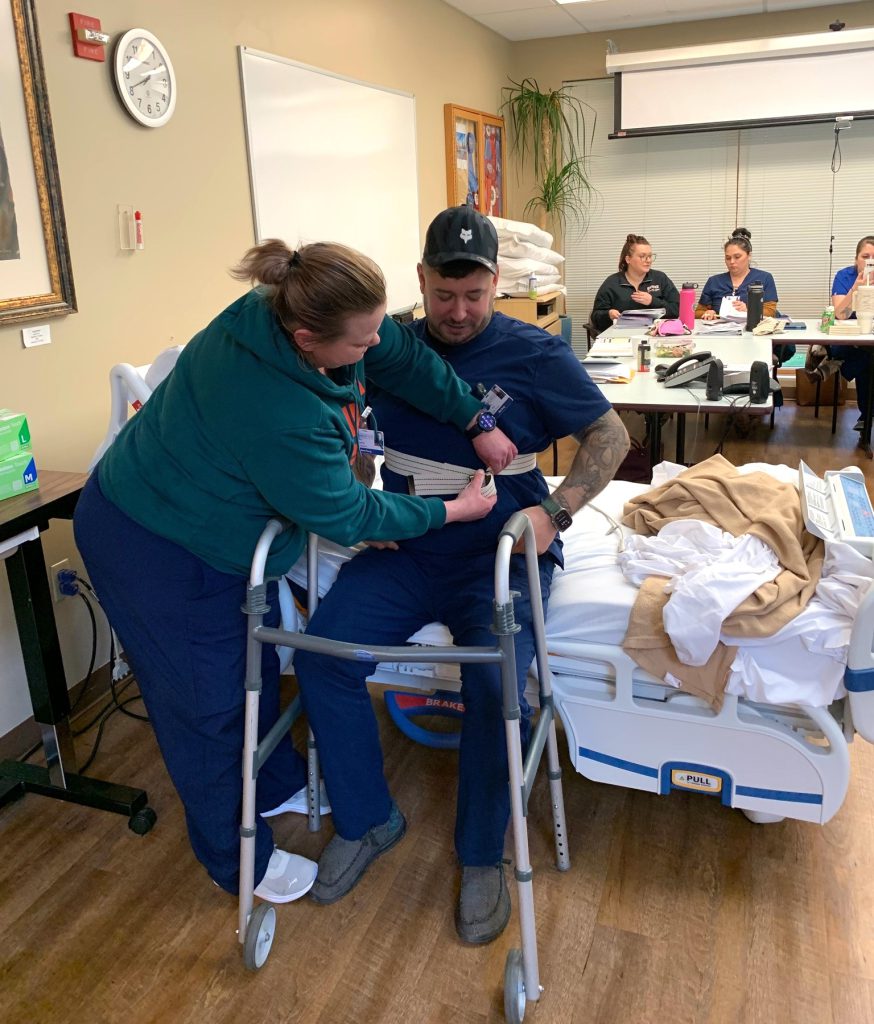

Students are tested regularly and at the end of the instruction, a skills test is given to prepare them for the state test.
“It’s something they should be really proud of,” Eberling said. “They’ve been working hard.”
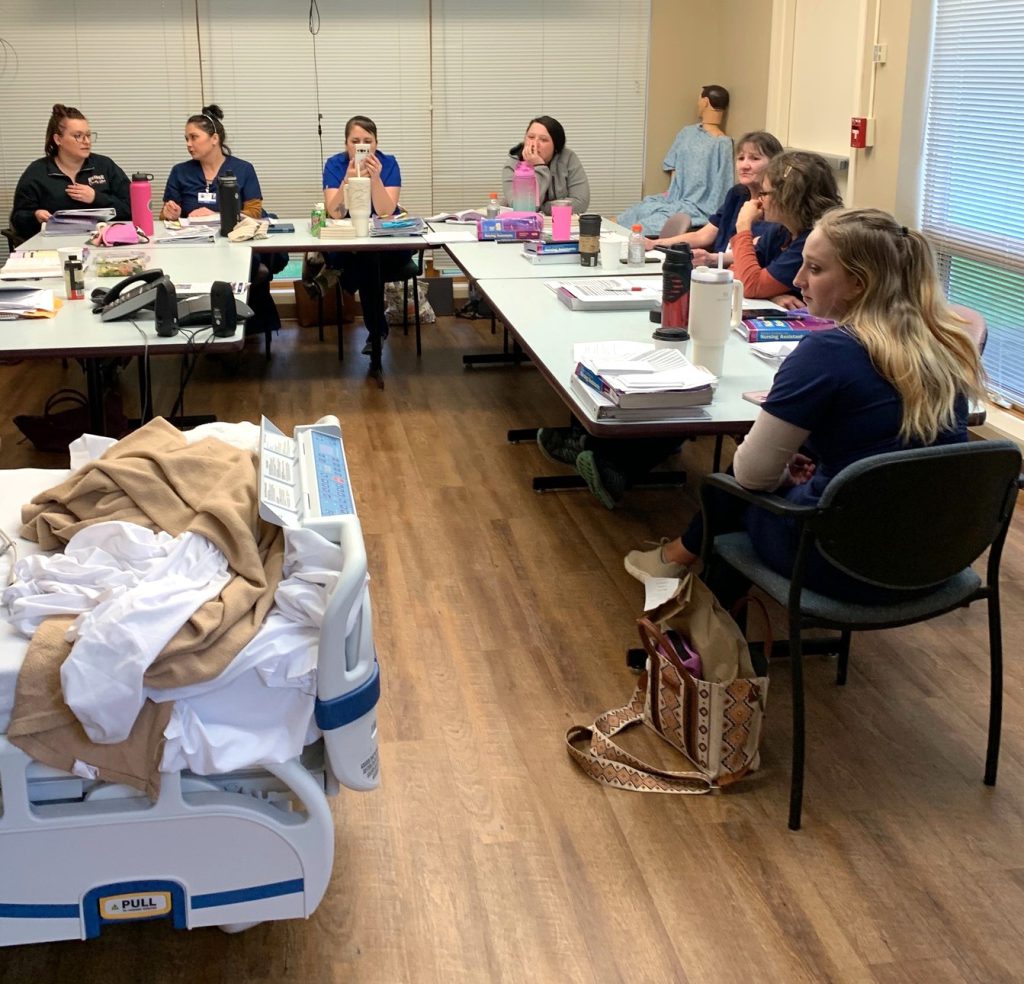

SCHHC Chief Nursing Officer Cori Valet said SCHHC agreed to host the course to continue provide the high-quality care the community deserves.
“Nursing Assistants are essential members of the healthcare team,” Valet said. “With the nursing shortages that are being felt across the country, it is especially important to consider how we can assist and provide additional resources to the healthcare industry.
“I am inspired to see the enthusiasm of those who applied and participated in the class as well as the staff and patient participation with this program,” Valet added. “Now that we have completed our first successful training opportunity, we will be discussing the possibilities of ongoing training.”
Eberling has taught the course at Bay Area Hospital and other facilities around the state. When she learned there is no CNA certification course at Southwestern Oregon Community College due to a shortage of instructors, she realized how important her company and others like it are. SOCC does offer a nursing program, but students must first have their CNA certificate to enroll.
Eberling was a small business owner who became a widow at age 36. She went back to school and became an RN. Experiencing the lack of CNAs first-hand while working in a hospital, Eberling established Pacific Healthcare Training in 2012. She wrote the curriculum and submitted it to the state. The company is licensed through the state board of nursing and the board of education.
“We can’t find enough labor in the medical field and in our area there is a large retirement community. CNAs are needed,” Eberling said.
Students are eligible to take the course once they’ve taken a drug screening, TB test and have completed a CPR class.
“The CNA 1 class was awesome,” said class member Avery Richards, who was hired per-diem at SCHHC after passing her CNA I exam. “I really enjoyed how hands-on it was and Joan was a great instructor. The class material we studied went quickly with the short time we had to finish the class, but was very informative and organized.
“I plan to continue to work at Southern Coos and hopefully transition into a full-time day shift position,” Richards added. “Future goals are to start my pre-reqs at SOCC for the nursing program to get my LPN and eventually my RN.”
SCHHC CEO Ray Hino was thrilled to host the class at the hospital. Following graduation, three of the nine graduates applied and were offered positions at the hospital.
“Congratulations to the first class of graduating CNAs who recently completed the CNA Training and Certification Class at Southern Coos Hospital & Health Center,” Hino said. “We are very proud of all of you, and we are excited to see you all grow and blossom in the very fulfilling field of healthcare.”
